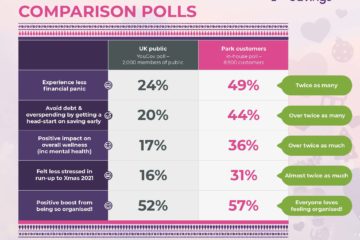A nationwide study* commissioned by Feel Good Contacts has revealed that due to the volatile UK job market, employees up and down the country are plagued with anxiety.
Whether it is being worried about making mistakes (42%), seeing yourself on Zoom (one in six workers), dealing with difficult colleagues and customers (one quarter) or handling a heavy workload (one fifth), staff are working in fear.
With this in mind, Feel Good Contacts has joined forces with business psychologist Jan P. de Jonge to help guide you through these difficult times.
Stay calm
Whenever you are feeling anxious, stop what you’re doing and take a few deep breaths to help you to stay calm. Count to ten. Remind yourself that you were selected for this job, because of the unique skills and experience you bring. You are a valued member of the team.
Prepare
Feeling as prepared as possible will help you feel less nervous and more confident. At the beginning of each week, make a work schedule. Of course, things are bound to come up at the last moment, but outlining a list of tasks will stop you from feeling overwhelmed.
Communicate any concerns to your manager or the HR team
Don’t suffer in silence. Managers want people to perform well and work in a harmonious environment, so talk to them about any client problems or conflicts with colleagues. If other issues are holding you back from doing your job, such as a heavy workload, lack of support or skills, then it is important to discuss them before they escalate.
Try not to present yourself negatively. Don’t say, “I’m bad with technology” or “I hate video calls,” instead ask: “What do you do to control your nerves when you speak on video calls?”
It’s good to talk
While it is impossible in this digital age to completely escape from the screen, there are small changes you can make which will make a difference to your wellbeing. Instead of firing off e-mails (which have the benefit of being quick and easy), try picking up the phone and talking to your colleagues or clients.
Phone calls add a layer of information and meaning, and you can clarify things quickly and avoid the misunderstandings which are so common with texts and emails.
“Zoom, Zoom on the wall…., Who is the most relaxed of them all?”
With many employees still working from home, Zoom meetings (or other online video platforms that want us to ‘face up to ourselves’) are essential for team management as well as handling client relations.
Even though it can be awkward seeing your face on screen and hearing your voice, it’s not always possible/professional to switch off the camera. One thing you can do is to put yourself on mute so that every time you cough or sniffle, you don’t appear on the screen. Also, when presenting, instead of looking at yourself (and worrying about your appearance), try looking directly at the camera.
Your team and clients will appreciate the eye contact. Try not to talk too fast, and your tone should not be too loud or quiet. Try to think about the positioning of the camera you are using. You don’t want people to have to stare up into your nostrils and the ceiling behind you because you forgot to raise the laptop to eye height on a couple of books for instance. Over time, you will get more used to this new way of communicating.
Finally, remember you might not be the only one feeling anxious about being on a video call; the other participants might be feeling the same way as you.
The brain likes breaks
Make a point of taking a proper lunch break. This healthy habit will stop you from glaring at your computer screen. We’re well aware of how damaging screen time can be to your health and productivity.
Recent evidence suggests that an ideal stint of uninterrupted work lasts for around 50 minutes after which you ought to give yourself a break, a time-out and away from that desk, of just under 20 minutes. Get some fresh air and have your sandwiches on a park bench or patch of grass. If this is not possible, then find a location in the room that is away from your computer screen and don’t look at your phone! Do this, and you will feel refuelled and rested, and you’ll be much more productive in the afternoon. Your brain likes breaks.
Switch off
Try and switch off in the evenings and weekends. You’ll do your best work if you’re not always in work mode. Remember that you deserve time off! Turn off your phone so that you won’t be distracted by any intrusive notification pings.
Recognise the value of leisure
You’ve heard the saying: a healthy body equals a healthy mind. Our working world is designed so that we are sitting for eight hours a day. This is the most passive thing you can do. Research shows that long periods of sitting can have a detrimental impact on our health and wellbeing. So try and find time to do some exercise.
Besides the physical benefits, exercise can help to manage your nerves as it releases endorphins in your body which relieve stress and pain and boost happiness. The key thing is to set aside time outside of work to do something that makes you feel content. By doing this, you’ll be ready to take on whatever challenges your job brings you.
Leavism
Leavism has been labelled as the new scourge of working life. This is where employees take their annual leave to catch up on their backlog of work and check emails to keep ahead of the game. The aim is to appear keen and competitive and to keep your job secure. It is vital that you take your annual leave to rest and enjoy your well-earned break. When you get back to work, you’ll feel rested, recharged, and motivated to perform effectively.
Sleep
Finally, don’t forget to get a good night’s sleep. Compelling research indicates that your mind, body, and soul really need that regular recovery. Make sure you address your personal and physical needs to help you to perform at work.
*The nationwide study of 2,000 UK employees was conducted by OnePoll.















